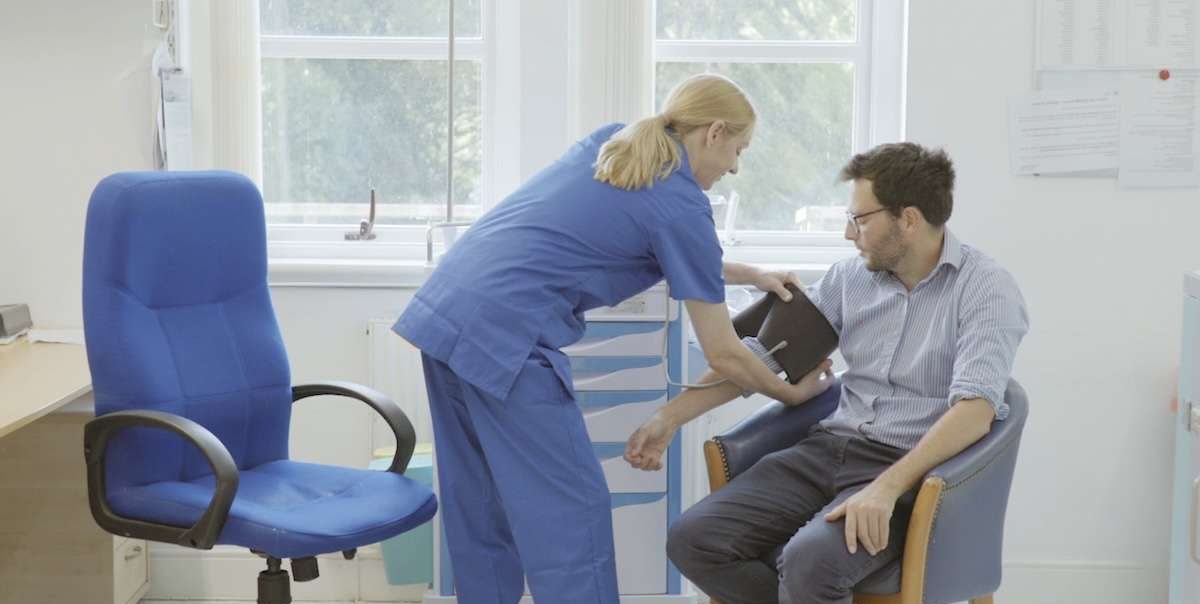
Residential Crystal Meth Detox Treatment
Castle Craig, located in the tranquil Scottish Borders, has been a trusted residential rehab facility for over 35 years, specialising in medically managed detox for a full range of substance misuse, including crystal meth dependency. Our focus is on supporting your overall recovery with compassion within a private and therapeutic environment. We aim to nurture both body and mind through the use of proven evidence-based therapy methods coupled with a holistic overview. Surrounded by 50 acres of serene woodland, our setting provides the peace and privacy needed for structured detox and rehabilitation from methamphetamine. Our experienced multidisciplinary team, including accredited doctors and therapists, are here to guide you through every step of your detox and recovery from meth misuse with compassionate support and focused therapy.
This article will explore a range of important topics, including how long it takes to detox from crystal meth, possible withdrawal timelines, symptoms to expect, key issues involved with detox and the role of medications in managing crystal meth comedown. If you’re seeking support or need more information about Castle Craig’s medically managed inpatient care plans for crystal meth detox, we encourage you to get in touch on 01721 546 263. Our friendly team is here to offer support for your search on overcoming meth addiction.
What is Crystal Meth Detoxification?
Crystal meth detoxification is the process of removing methamphetamine from your body while addressing the physical and psychological effects of withdrawal. This is often the initial step in recovery from crystal meth misuse and involves managing symptoms such as fatigue, anxiety, depression, intense cravings and sleep disturbances.
During a crystal meth detox, your body will begin to adjust to life without the substance. The length and experience can differ based on the level of dependence and your overall health. Withdrawing from crystal meth can be challenging without medical guidance. Seeking guidance from clinical experts in a professional crystal meth rehab facility is highly recommended for your safety, as this will provide the necessary assistance required throughout the detox process.

Start Your Recovery at a Residential Rehab Today
What is a Medically Managed Crystal Meth Detox?
A medically managed detox for crystal meth allows medical professionals to be on hand throughout the detox process. Crystal meth comedown symptoms are targeted with evidence-based care, promoting safety and comfort as your body removes the methamphetamine. A residential setting always aims to guarantee privacy and round-the-clock support.
The benefits of a medically managed detox are fundamentally linked to your health and safety. Qualified medical professionals will monitor your progression throughout the detox process, using a structured timeframe to promote your overall mental and physical stability. A reduction of the associated detox health risks helps to provide a secure foundation for long-term recovery from crystal meth dependency.
Difference Between Medically Managed Crystal Meth Detox and Medically Supervised Crystal Meth Detox
Medically managed detox offers a higher level of care compared to medically supervised detox. While medically supervised care involves some general oversight, medically managed detox makes sure that a fully qualified and multidisciplinary team is actively involved in your treatment. Specialist doctors, nurses and therapists will work collaboratively to offer meth detox support for withdrawal symptoms throughout the detox process.
Medically managed detox could also provide a more thorough scope of care, possibly recommending medications to alleviate symptoms. Psychological support is another important factor that could be applied to manage the challenges of meth withdrawal. This intensive approach prioritises safety and ongoing progress, making it particularly effective for managing crystal meth withdrawal symptoms and promoting long-term recovery from meth.
Free Methamphetamine Addiction Assessment
Castle Craig offers free drug assessments for those struggling with methamphetamine or other drug dependencies as part of the admissions process. This no-obligation service provides a private and secure space to discuss your situation with a professional. If you’re looking to take the first step towards recovery from meth misuse, you can call us on 01721 546 263 and begin your path to a healthier future.
Following your free assessment, we can develop a personalised residential treatment plan of medically managed detox services to address your substance addiction and support long-term recovery. We’ll be by your side along the way, providing the help and expertise you need throughout your healing process.


Benefits of Inpatient Residential Methamphetamine Detox Treatment
Choosing an inpatient residential methamphetamine detox care plan provides numerous benefits, from providing safety during withdrawal to offering structured support and personalised care. Residential care plans helping patients through a crystal meth detox can create an environment customised to particular physical and emotional needs, assisting through the stages of detox and beyond.
Below, we explore the key advantages of residential detox in detail. From medical management to long-term recovery support, each benefit demonstrated that the detox process is as safe and effective as possible for those overcoming methamphetamine dependency.
-
Medically Managed Methamphetamine Withdrawal in a Safe Setting
Medical management during methamphetamine withdrawal is essential for treating crystal meth detox symptoms safely. At well-established inpatient rehab facilities, experienced healthcare professionals oversee the detox from meth to optimise patients’ physical and psychological well-being at every stage. Careful management reduces risks and provides reassurance to those undergoing this difficult process.
A clinical medical environment also makes a significant difference, offering a secure and controlled space to manage methamphetamine withdrawal. Questions like “how long do crystal meth withdrawals last?” can be addressed directly by specialists, making sure patients feel supported throughout their crystal meth detox recovery.
-
Structured Support to Manage Withdrawal Symptoms Effectively
Methamphetamine withdrawal symptoms can be physically and emotionally challenging. Structured support within an inpatient meth detox care plan makes sure that symptoms are managed effectively, minimising discomfort and helping patients progress through the detoxification process. From medications for crystal meth detox to targeted care strategies, every element is handled with professionalism and compassion.
Understanding the full meth detox timeline is another benefit of the structured care in residential addiction treatment centres. Treatment plans are designed to help with various withdrawal symptoms, including managing meth cravings, sleeplessness and agitation. By addressing these challenges step by step, the process becomes more organised, creating a smoother path towards recovery.
-
Immediate Access to Meth Addiction Treatment Services
During inpatient methamphetamine detox, patients benefit from immediate access to comprehensive addiction treatment services. This includes therapeutic interventions, counselling, and medical support to address both the physical detox and the psychological aspects of meth dependence.
Having these resources on hand also reduces delays in care, providing patients with the means to move directly from detox to crystal meth addiction rehab treatments. Immediate access to these services helps patients understand how long to detox from crystal meth and minimises the risk of any unnecessary interruptions to progress.
-
Breaking the Cycle in a Controlled Environment
One of the most valuable features of inpatient detox is the controlled environment it provides. Removing external triggers and distractions allows patients to focus entirely on their recovery, making it easier to break the cycle of methamphetamine dependence.
This controlled setting also helps those detoxing from crystal meth to manage cravings and avoid the temptations that may exist in their everyday lives. With 24/7 supervision, patients receive unwavering support as they work to regain control.
-
Tailored Treatment Plans for Long-Term Sobriety
Each patient experiences methamphetamine withdrawal differently, which is why carefully curated treatment plans for methamphetamine misuse are vital. Detox care plans targeting meth withdrawal are specifically designed to meet each person’s unique needs to promote long-term sobriety.
Bespoke plans in private rehab centres cover all aspects of recovery, from medical detox for meth to counselling for emotional support. This personalised approach makes sure that patients gain the tools they need for successful crystal meth recovery and future relapse prevention.
-
Emotional and Psychological Support Throughout Detox
The emotional and psychological impact of crystal meth withdrawal can be significant. However, an inpatient detox service delivers ongoing care to help patients cope with these challenges. Specialists can provide a full range of therapy and encouragement in managing anxiety, depression and emotional distress.
A high degree of dedicated attention to all aspects of well-being makes sure that mental health is prioritised alongside physical recovery. Emotional stability during crystal meth detox is key to preventing relapse, creating a strong foundation for sustainable sobriety.
-
Smoother Transition from Detox to Ongoing Crystal Meth Rehab
A major benefit of inpatient care is the seamless progression it provides from detox to long-term meth addiction help. Services are designed to provide continuity of care, so patients don’t feel unsupported after completing the withdrawal stage.
Whether it’s outpatient detox care, ongoing counselling or holistic rehab for drug addiction, every next stage is structured with precision. This smooth transition significantly reduces the risk of setbacks and keeps an ongoing recovery on track.
-
A Peaceful Environment to Begin the Path to Recovery
The setting of an inpatient meth detox service could make a meaningful difference in recovery from methamphetamine misuse. A calming environment encourages relaxation and alleviates stress, providing a supportive space to begin the recovery process.
Taking a break from your usual day to day activities to concentrate on the recovery process without distraction could offer a significant advantage. A calming environment free from external pressures can help rebuild both physical and mental strength.
Private Medically Managed Crystal Meth Detox Centre Near Me
Castle Craig is a private medically managed detox centre, offering expert support for crystal meth dependency in a safe and structured environment. With a focus on confidential, evidence-based care and professional guidance, our team is dedicated to helping you begin your recovery from methamphetamine misuse. Read on to learn more about how we can support your treatment needs.

Contact Castle Craig Residential Detox Centre
Castle Craig is located in West Linton, Edinburgh, United Kingdom, EH46 7DH. Our residential facility is located within 50 acres of peaceful Scottish Borders countryside, offering a private and serene setting for your recovery. Promising a perfectly secure and comfortable setting for detox and treatment for crystal meth dependency, our inpatient facility is an ideal location for focusing on ongoing health and well-being.
Find Us
01721 546 263
info@castlecraig.co.uk
Castle Craig,
West Linton, Edinburgh, United Kingdom, EH46 7DH
To discuss your needs and learn more about our residential care plans for drug and crystal meth addiction, call us on 01721 546 263. Our team is ready to offer guidance, answer your questions and support you every step of the way.
-
How to Find Methamphetamine Detox Centres Near You
Locating a private inpatient methamphetamine detox centre requires thorough research to make sure it meets your needs. It’s important to look for a facility offering expert care, a supportive medical environment and reliable detox services. Below are helpful steps to guide your search and help you make an informed decision:
- Search for “Private Methamphetamine Detox Near Me” or Include Your Location: Use search terms like “private inpatient methamphetamine detox centre near me,” “methamphetamine detox clinic in UK,” or “medically managed Methamphetamine detox UK” to find nearby options. Including your location helps narrow down results for convenience.
- Look for Medical Management and 24/7 Support: Make sure the detox facility provides medically managed detoxification with round-the-clock monitoring by trained professionals. Treating withdrawal symptoms safely and effectively needs a high level of care and attention from professional medical staff in an accredited rehab centre.
- Read Reviews and Testimonials: Browsing feedback from previous patients gives insight into the quality of care and overall experience at crystal meth detox facilities. Look for patterns in reviews to identify strengths and areas of satisfaction.
- Consider What’s Included in the Care Plan: Evaluate the therapies, amenities and additional supports offered, such as one-to-one addiction counselling, group therapy or fitness sessions. An inclusive approach promotes physical and emotional recovery.
- Enquire About Costs and Payment Options: Try to gain clarity on overall costs and ask about available payment plans. Some crystal meth facilities offer flexibility to make the cost of drug rehab and access to treatment more manageable.
- Check if They Accept Health Insurance: If you have private health insurance, confirm whether the detox treatment facility accepts it. This could significantly reduce the financial burden of treatment while making sure of high-quality care.
Find Out About Our Residential Crystal Meth Detox Treatment
Castle Craig offers free methamphetamine addiction assessments as part of the admissions process designed to provide a safe and discreet starting point for your recovery. Our compassionate team is here to listen and support you, helping you take the first steps towards a healthier future. Get in touch via our secure contact form to begin your journey towards lasting change.
Following your free assessment, we can create a personalised, medically managed detox care plan customised to your needs. Our expert team specialises in methamphetamine addiction recovery plans that combine evidence-based care with ongoing support, promoting sustainable recovery. Contact us today on 01721 546 263 to learn how we can help you regain control of your life.
Free Crystal Meth Addiction Assessment
Taking the first step and asking for help can feel daunting, but our team is here to assist you.
Signs, Symptoms and Effects of Crystal Meth Withdrawal & Detoxification
The process of detoxing from crystal meth can bring numerous physical, mental and psychological challenges. Understanding these common signs, symptoms and effects can help you recognise what to expect during methamphetamine withdrawal and detoxification. While this guide outlines key experiences, it’s important to note that each patient’s detox timeline and symptoms may vary.
-
Early Signs of Crystal Meth Withdrawal
Withdrawal symptoms often begin within 24-48 hours of stopping crystal meth. These early signs are your body’s initial reaction to the absence of the drug and can last for several days.
- Intense fatigue and tiredness: A sudden drop in energy can lead to overwhelming exhaustion, making it a struggle to perform simple tasks.
- Increased appetite: A heightened urge for food during the withdrawal stage could be present, as the body attempts to replenish nutrients and draw on more energy.
- Depression or low mood: Persistent feelings of sadness or hopelessness can occur as the brain adjusts to lower dopamine levels.
- Anxiety or emotional unease: Heightened stress or unease is common as your body works to rebalance itself chemically.
- Slowed reaction time and thinking: Mental fog, sluggishness and difficulty processing thoughts can develop during this stage of meth withdrawal.
-
Moderate to Severe Symptoms of Meth Withdrawal Syndrome
After the initial few days, moderate to severe symptoms may emerge, often lasting one to two weeks. These symptoms can feel more intense without professional support.
- Powerful drug cravings: Strong urges to use crystal meth can surface, making it a significant challenge to resist relapse.
- Insomnia or disrupted sleep: Fatigue could be intensified by struggles to either fall asleep, or remain asleep. This, in turn, could have a negative impact on the patient’s emotional state.
- Agitation and restlessness: Nervous energy or irritability often leaves people feeling on edge and unable to relax.
- Difficulty focusing or making decisions: Cognitive disruptions can hinder concentration and complicate daily decision-making.
- Mood swings and emotional instability: Rapid emotional shifts, from anger to sadness, can occur as withdrawal progresses.
-
Psychological Effects of Crystal Meth Withdrawal
Crystal meth withdrawal can also impact mental health. These psychological effects are often more concerning and may persist for a longer time if left untreated.
- Suicidal thoughts or feelings: Suicidal ideation or feelings of intense despair could be an unfortunate feature of withdrawal from crystal meth. If you or someone you know is feeling like this help is available.
- Severe anxiety or panic attacks: The withdrawal process from methamphetamine can trigger intense worry, fear or sudden episodes of overwhelming dread.
- Intense paranoia: Some patients undergoing a crystal meth withdrawal may feel overly suspicious or believe others pose a threat, even when no actual danger exists.
- Hallucinations (visual or auditory) in some cases: Experiencing things that are not real, such as hearing or seeing things, is possible during this phase.
- Anhedonia (inability to feel pleasure): A lack of joy or satisfaction during activities that were once enjoyable can emerge as withdrawal continues.
-
Physical Signs and Symptoms During Meth Detoxification
The body’s physical response to detoxification also manifests through a range of symptoms, most of which resolve with time.
- Headaches: Improved hydration and rest can help ease tension or withdrawal-related headaches.
- Muscle aches or general body pain: Pain throughout the body is a common response as it begins to heal.
- Shakiness or tremors: Uncontrollable shaking in the hands or limbs may occur during the body’s adjustment phase.
- Dry mouth or dehydration: Increased thirst or a sensation of dryness in the mouth typically accompanies detoxification.
- Increased appetite and sudden weight gain: A spike in hunger may result in rapid weight changes as the body recovers its metabolic balance.
-
Long-Term Effects Without Proper Detox Support
Attempting to detox from crystal meth without guidance can prolong symptoms or lead to long-lasting negative effects. Seeking professional care makes sure of your well-supported safety and reduces the risk of complications.
- Persistent depression or anxiety: Without treatment, emotional distress may persist, hampering recovery progress.
- Long-term sleep issues: Continued insomnia or irregular sleep patterns may arise, causing ongoing fatigue.
- Cognitive impairments (memory, attention): Struggles with focus or memory could become more apparent and affect daily life.
- Ongoing intense cravings: Without proper intervention, the urge to use crystal meth often remains difficult to overcome.
- Higher risk of relapse and overdose: A lack of medical management increases vulnerability to relapse, which can result in life-threatening overdoses.
Understanding these signs, symptoms and effects of withdrawing from crystal meth underscores the importance of clinical help. A medically managed detox provides the necessary foundation for a safer, more supportive recovery process.

Medications Used for Crystal Meth Detoxification
Medications may or may not be used during crystal meth detox depending on your particular needs and the severity of your addiction. Below are medications some clinicians may consider, each specifically for supporting various symptoms and promoting recovery.
- Benzodiazepines: Benzodiazepines are often prescribed to manage anxiety, agitation and insomnia during methamphetamine withdrawal. These medications help calm the body and mind, providing relief during the initial detox stages. Benzos can be effective when managed carefully in a professional detox centre, but it carries a high potential for dependence and misuse.
- Antidepressants: Antidepressants can address feelings of depression or emotional distress that may arise during detox. They support mental well-being, which is crucial for maintaining focus on recovery.
- Antipsychotics: Antipsychotics may be used to manage severe mood swings or psychotic symptoms like paranoia or hallucinations. These medications help stabilise emotional and mental states during meth comedown.
- Modafinil: Modafinil can be prescribed to reduce fatigue and improve focus in those recovering from methamphetamine use. It supports energy levels, helping to maintain motivation during detox.
- Bupropion (Zyban): Bupropion is sometimes used to manage cravings and withdrawal symptoms. The medication could support the detox process by reducing the intensity of urges associated with meth dependency.
- Mirtazapine: Mirtazapine may assist with sleep difficulties and mood-related symptoms. It can generally help patients feel calmer and better rested during the detoxification process.
- Sleep Aids (e.g. Melatonin, Hydroxyzine): Sleep aids like melatonin or hydroxyzine are used to promote rest and alleviate insomnia. These medications provide a sense of calm and help the body recover through proper sleep.
- Nutritional Supplements: Nutritional supplements such as vitamins and minerals contribute to replenishing the body’s depleted resources. They play a vital role in restoring physical health and boosting overall recovery.
At Castle Craig, our approach to the use of detox medications is conducted with the highest level of responsibility so that they do not result in a new dependency. We understand that this may be a concern for some patients, and we are here to assure you that detox medicines are prescribed only when clinically necessary and are closely managed under the care of our Consultant Psychiatrist and trained medical staff.
Our goal is to alleviate withdrawal symptoms safely while focusing on your overall recovery and the goal of abstinence. By using evidence-based protocols and regularly assessing your progress, we only use detox medications as a short-term tool to support your transition into sobriety, always prioritising your long-term health, well-being and abstinence.

Contact Castle Craig Today
Get in touch with Castle Craig to learn more about our residential treatment options and admissions process. Call 01721 546 263 today to talk to a compassionate professional. Alternatively, complete our secure online form here to begin your recovery journey. Every step brings you closer to the care and support you deserve.
Does Health and Medical Insurance Cover Crystal Meth Detoxification Treatment?
Yes, health and medical insurance typically cover crystal meth detoxification treatment, but this will depend on the details of your policy and the insurance provider. The level of cover may vary between plans, so it is important to check with your insurer what is included.
If you have the appropriate cover and authorisation, Castle Craig accepts private health or medical insurance for addiction treatment. Our team can assist in clarifying the details of your approved treatment and make sure you feel supported as you access the care you need.
How Much Does Residential Crystal Meth Detox Cost?
The cost of crystal meth detox within a residential rehab care plan in the UK typically ranges from £650-£1,500 daily or £4,500-£10,000 weekly. These figures can vary as detox timeframes depend on the severity of your addiction or the recommendations of the medical specialist managing your treatment.
Drug rehab costs can also differ based on your specific needs and your particular treatment plan. Investing in personalised care provides the best support for lasting recovery, customised to meet your unique circumstances. Here at Castle Craig, our admissions team is here to guide you through the process with compassionate care.
Crystal Meth Detox Timeline and How Long It Takes
Starting the process of crystal meth detox is an important first step in regaining control over your life. Detox is just one part of the bigger recovery picture. The typical crystal meth detox timeline detailed below could help answer the question, “how long does it take to detox from crystal meth?” Following this, a full crystal meth recovery care plan may be recommended for longer-lasting and sustainable recovery.
-
Stage 1: Early Withdrawal Symptoms (6–12 Hours After Last Dose)
Around six to twelve hours after stopping crystal meth use, withdrawal symptoms often begin to set in. Fatigue and irritability are common, along with the onset of cravings. Many people describe feeling a sudden crash as the body reacts to the absence of the drug.
The experience during these initial hours can feel uneasy and disorienting. With medical supervision, you’ll have the reassurance of knowing that your health is being closely monitored and any discomfort can be managed effectively. Professionals are there to help you through the challenging early phase, making the transition smoother.
-
Stage 2: Peak Tramadol Withdrawal Symptoms (24–72 Hours)
The withdrawal symptoms usually hit their peak between 24 to 72 hours after the last dose. This phase can be particularly intense, featuring extreme tiredness, mood swings, strong cravings, and significant issues with sleeping. Some patients also find themselves feeling restless or agitated during this time.
Although this stage can feel overwhelming, it’s temporary, and you don’t have to face it alone. Medical professionals can provide both physical comfort and emotional reassurance, helping you manage the most difficult days of the detox safely. Their presence makes a meaningful difference, allowing you to focus on getting through this milestone in your recovery.
-
Stage 3: Subsiding Symptoms and Stabilisation (3–7 Days)
By the third to seventh day, withdrawal symptoms often start to ease. Energy levels may begin to improve, and it’s common to see sleeping patterns return to something closer to normal. Feelings of anxiety or low mood can linger but often become less intense compared to the earlier stages.
The easing of symptoms signifies a period of physical and emotional balance beginning to return. As detoxing clears your body of potentially harmful substances, it provides an initial opportunity for ongoing recovery. Moving forward into a personalised rehab care plan, such as the substance misuse care plans offered by Castle Craig, will give you the tools and support to stay on track with your well-earned progress.

Related Guides on Medically Managed Residential Detox
Detox Centre | Inpatient Detox | Alcohol | Drugs | Cocaine | Heroin | Crystal Meth | Valium | Tramadol | Benzodiazepines | Xanax | Codeine | Opioid | Ecstasy | Morphine |
Inpatient Medically Managed Crystal Meth Detox Treatment Admissions Process
An inpatient medically managed detox care plan targeting crystal meth addiction at Castle Craig is designed with your unique needs in mind. Our treatment plans can be typically adapted to make sure of the best possible care plans for every patient. Below, we detail our simple and supportive admissions process that helps you to get started with crystal meth detox and rehab at a trusted facility.
- Initial Enquiry and Confidential Consultation: Your first contact with us is simple, discreet and supportive. During this step, you can speak with a compassionate member of our team, ask any questions you may have and discuss your concerns. It’s an opportunity to explore how we can help and to gain clarity about the next steps in your recovery.
- Pre-Admission Crystal Meth Addiction Assessment: Before you arrive, a thorough pre-admission assessment is carried out by one of our addiction professionals. The assessment looks at your medical history, current needs and personal circumstances. It helps us design a care plan that’s right for you, making sure you receive the most appropriate and effective care.
- Confirm Insurance or Funding Options: To ease any financial concerns, we can advise you on the suitable funding options that we accept. Our admissions team will work with you to clarify costs and make sure you fully understand your financial responsibilities before treatment begins.
- Confirmation of Admission and Booking: Once the details are arranged, we’ll confirm your admission and secure your booking into the care plan. At this point, we’ll also provide you with essential information about preparing for your stay, including what to bring and what to expect upon arrival.
- Arrival for Crystal Meth Detox and Rehab Treatment: From the moment you reach our facility, you’ll be welcomed into a caring and safe environment. Our medical and therapeutic team will guide you through admission, making sure that you feel comfortable and supported as you begin your detox and recovery process. We’re here to help you take those first steps towards a healthier future.
Your well-being is at the heart of everything we do at Castle Craig. If you have any questions or would like support with starting your rehab admissions process, don’t hesitate to reach out to us.
Questions About Detox for Methamphetamine?
Contact us to discuss your treatment needs with a licensed clinician.
Find Out About Our Residential Drug Detox Treatment
Castle Craig is here to help. We offer free residential addiction assessments, giving you the chance to speak with a compassionate professional in a private setting. This first step can help you explore your options and begin the path to recovery with the support you deserve.
Our team creates customised treatment plans designed to meet your unique needs. We can also provide a more accurate understanding of residential rehab costs based on your specific circumstances. Contact us today on 01721 546 263 and take a brave step towards a healthier, brighter future.
Free & Confidential Assessment
Compassionate, expertly delivered evidence-based practices and a patient-centred approach are at the heart of our treatment model. Request a call-back from one of our professionals on any day of the week.
-
Statistics on Methamphetamine in the UK
- Class A drug use, which includes methamphetamine, was reported by 3.4% of adults aged 16 to 59 in the year ending March 2024.
- From 2022-2023, the UK saw a small but significant rise in methamphetamine treatment numbers – from 558 in 2021-2022, to 615 in 2022-2023.
- Research from the USA outlined that methamphetamine is the second most commonly found drug in a fatal overdose.
- Evidence suggests that a range of psychological treatments can be effective in reducing methamphetamine use and its related psychological symptoms.
- A United Nations report found that the production and supply of amphetamine stimulants on a global level continues to be dominated by methamphetamine.